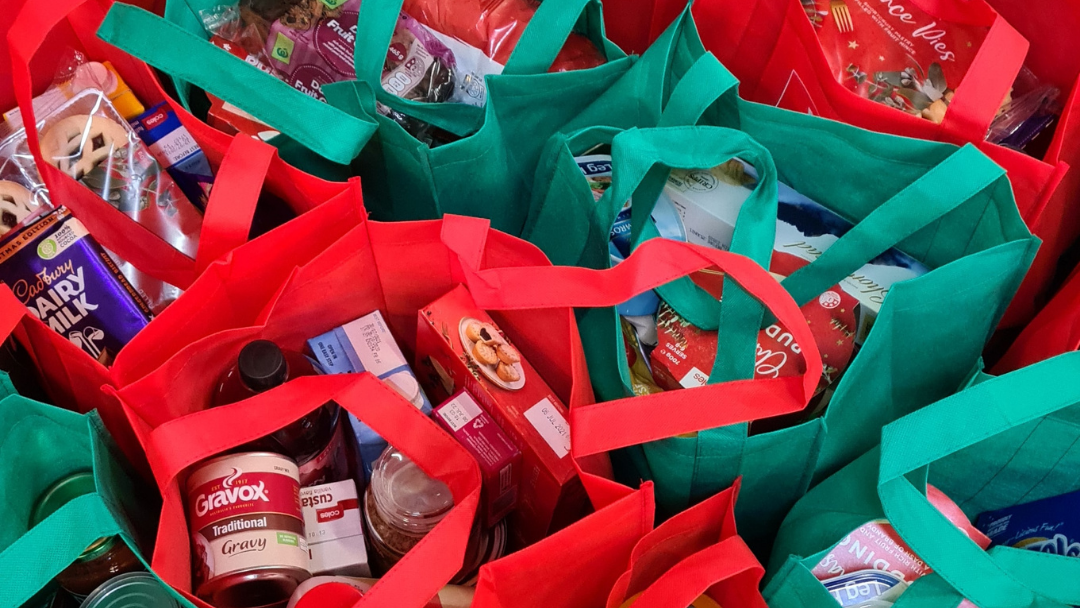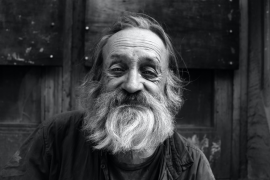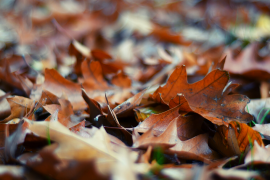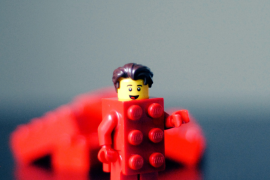I DON’T HAVE TO GO TO SCHOOL ON SNOW DAYS, DAD SAYS. There are more important things I have to learn.
In some places, there is no school on snow days because there is real snow on the ground. Here in the desert, it never snows anyway. The Joshua trees shimmer in the heat like Dr. Seuss characters, hair spiking and skewering, corkscrew spirals every which way.
I’m disappointed. The school talent show is today, and I told Rich I’d be cheering for him. He’s going to sing the song he says he wrote for me.
“Nobody ever learned anything sitting on her butt at a desk,” Dad says. He tells me to grab my backpack, not my school one, but an older one, shiny with grime and grease. I wrinkle my nose. It smells like mildew, like old food has collected inside and started to grow all over again.
We learned about the life cycle in science this year on some of the days I went to class. Nothing is ever really destroyed. It just changes form.
After Mom, I only felt like I was destroyed. It is a happier thing to learn that I just changed instead.
Our first stop is a church. Dad says churches are good places to go since people already have their wallets open.
“If God’s going to put the right spirit into them, who are we to stop them?” he asks.
We are on the road this morning with Tiki, a tall, taciturn man who says almost nothing. He reminds me of a totem pole, expression carved onto a smooth surface, unblinking and frozen. Tiki is driving us to Winston, maybe ten miles down the road from Farmington, where I go to school and where we “live” now (Dad makes the air quotes every time he says this). There’s a Methodist church here, with a clothes closet and a food bank. He’s got the radio on. The wind carries the scents of morning—fried bacon, burnt coffee, diesel vapors. Life going on and on.
At least we aren’t assigned to hold signs today. Someone from school might see me.
Tiki pulls up along the curb. Words jump out of him even though his lips stay sealed.
“I’ll be back here in one hour,” he says.
“Don’t say too much,” I say, in a tone my mother would have described as teenage snotty know-it-all.
Both men look at me.
“I already know,” I say.
I’m getting too old for this. They know it and I know it. The best age is early elementary school, when you are still cute in pigtails and can show a few missing teeth in the front. I used to take a stuffed animal with me. Not one that was mine, but one that was chosen for me to hold, that had saggy, sad rabbit ears and a threadbare tail. I would wear pants that were halfway up my leg and that pinched the entire time I wore them. Old ladies would take one look at me and melt. Not many things as noble as a father trying to feed his baby girl.
Now I’m speckled with acne and attitude. I don’t bring in as much as I used to. I wonder where she went, that little girl with her thumb in her mouth, big blue eyes. Rich says my eyes are beautiful, that they are the color of the sky early on the Fourth of July, a blue that promises parties and parades.
My mom told me that if someone said they were feeling blue, it meant they were sad. I used to wonder if because my eyes were blue, I would be sad longer, or that I would only see sad things.
There are a lot of sad things to see.
I learned in science. That little girl didn’t go away. She changed form. She needs a bra, and they won’t have one at this clothes closet, and I will have to go to the store and wander around searching without my mom, with no idea of how to choose one.
I miss Rich. I grab the smelly, petri-dish backpack and get out of the car.
“Let me do the talking,” Dad says, like he always does. I resist the words I already know.
This church looks like it needs some help. The shingles are covered in moss. The paint is peeling and flaking off the porch steps like dandruff or a bad sunburn. Dad knocks on the door with the peephole.
Why would a church need a peephole? Aren’t they supposed to take anyone who shows up? Don’t they have to trust?
The door opens. It’s a woman, late twenties or early thirties, with dark, curling hair and caramel-colored eyes.
“Can I help you?” she asks.
Dad takes his hat off his head, aims his eyes down in a position of mock humility. Direct eye contact is threatening, he told me. Best way to snow someone is look at them on and off. No eye contact, they will wonder if you’re lying.
“Good morning, ma’am,” he says. Be polite. Tell a good story. “We’ve fallen on some hard times. We heard there might be help here.”
The woman smiles. You’re giving them something too. You’re giving them the opportunity to feel luckier than you.
“Yes!” she says. “We can help. What do you need?”
Dad sighs. Don’t be specific. See what they have to offer first.
“I don’t know where to start,” he says, his eyes meeting hers, then drifting away, implying private, painful thoughts.
The woman grabs a clipboard and a pen.
“Well, let’s start here,” she says. “Are you unsheltered?”
Dad shrugs. “Couch surfing, mostly.”
I don’t say anything. We are renting a room a few blocks from school. Dad gets the bed. I take the couch.
“Oh, that’s hard,” the woman says. “A lot of our families are in that position. Do you have enough to eat?”
“She gets bags of food at school,” he says, pointing to me, “and breakfast and lunch there too.”
I put the bag of food in my backpack and pretend it’s full of books. I don’t like the cans because they make noise when I set the backpack on the floor.
“What about you?” the woman says. “How are you eating?”
Dad shrugs again, as if his own welfare isn’t important.
“How’s her mother doing?” the woman asks. “Is she eating enough?”
Here’s where I start to cough. It feels like something is lodged in my throat, something slippery that I can’t swallow. My voice comes out in a congested whisper.
“My mom died,” I say. “She doesn’t eat.”
Dad shoots me a look. I’m not supposed to go off script. They give us less food if Mom is dead. In his version, Mom is recovering in the hospital, and she can’t work. That version gets more food. Sometimes we get gift cards.
“Oh,” says the woman. “I’m so sorry.”
I can’t stop.
“Me too,” I say, and even though I don’t want them to, tears start to stream down my face. I rub my eyes with the cuff of my flannel shirt. My nose starts to run.
“That must be a pretty recent development,” she says, and there is a change in her voice, a hardening. “The last time I heard, your mom was in the hospital.”
Dad looks at her straight in the eye.
“What do you mean, ma’am?” he asks. “We haven’t been here before.”
Her mouth is a straight, tight line, clenched under her pink lipstick.
“All of us talk to each other, you know?” she says. “Didn’t you visit the food pantry in St. Helens just last week and give this same performance? And Mom was alive then, in the hospital, clinging to life?”
I moan. The tears are blurring my vision, and I dig into the smelly backpack, hoping to find some Kleenex. Mom wasn’t alive last week. She wasn’t alive last month.
Dad fixes the woman with a stare that could pierce metal.
“You’re making my daughter cry,” he says. “You’re a hard woman.”
She doesn’t look down or look away.
“I’m an honest woman,” she says. “Why don’t you get out now before I call the police?”
Dad’s voice is low. “Why would you call the police?”
“Because you’re here under false pretenses.”
“My mom is dead,” I tell the woman. “She really is.” The sadness oozes out of my blue eyes, the eyes that see the sad things.
In language arts, we talked about multiple meaning words. “Lie” means to tell something other than what’s true, but it also means something you do when you go to sleep. Why is there no verb, nothing you do with your body, that means to tell the truth? Standing is something you can do, but to take a stand doesn’t mean to tell the truth, it just means you choose a side.
“Mmm,” says the woman. “Okay.”
“It’s true!” I shout at her, my voice raggedy around the edges. “I don’t even know how to pick out a bra!”
Dad glares at me. None of this is going according to plan.
The woman looks at me. “I may be able to help you with that, actually.”
I wipe my streaming nose and eyes again with the cuff of my shirt. She gestures at a chair in the corner of the room near an open closet door.
“Over there,” she says, “is a measuring tape, under that pile of clothes on the chair. If you measure across your chest, and tell me the number, I have some sports bras that were just donated that might work for you.”
I don’t say anything to her. I turn my back to both of them, pull the measuring tape across my chest and squint down at the number. I’m supposed to have glasses. Mine broke and I can’t get another pair through the school until next year.
“I need glasses,” I tell her. “I can’t see the number. I think it’s thirty-four?”
She walks over but doesn’t turn her back on Dad.
“Let me see,” she says. “It looks like it’s closer to thirty-five, so you go up to thirty-six. The bra might shrink a little. I think you might need…a medium.”
She reaches into a bag next to the chair. “Black or white?”
“I don’t care,” I say.
“Let’s have you take one of both,” she says. She hands them to me, not with compassion, but in a way that settles something. I am just another problem to be solved, something to be crossed off someone’s list.
“There. When you wash them, don’t put them in the dryer. Let them dry on a hanger instead. They will last longer.”
“Thanks,” I say. I know that’s the right thing to say.
She returns to staring at Dad.
“She needs glasses,” she says. “If you go to the Lions Club, they have a barrel there in the front with donated glasses. You might find something there.”
“Okay,” he says.
He waits. She waits.
“Have a good day,” she says. She hands him the sheet of paper that says we are unsheltered and that I get free breakfast and lunch at school. I push the two sports bras into my backpack.
As soon as we are out the door and past the peeling paint, Dad looks at me. He’s got a huge grin on his face.
“You were amazing in there!” he says.
I just stare at him. His smile is so big, he looks like a circus clown. I used to be so scared of them until I realized all that forced partying was just an act.
“What?”
“All that crying! You got two sports bras for free! You saved us fifty bucks!”
I don’t say anything. I can’t say anything. I watch a piece of trash blow down the sidewalk, fast food wrappers scraping against the concrete. My new bras will smell like the rotten, mildewed backpack by the time we get “home.” I make the air quotes around the word in my head.
I hear my voice. It is so easy to lie. It takes less energy to lie than to stand.
“Okay. Thanks, Dad.”
“Tiki’s gonna be so impressed,” he says, giving me a buddy-buddy shoulder shove. “That lady already knew who we were! What can I say? You’re learning from the best!”
HEATHER BARTOS lives near Portland, Oregon. Her personal essays have appeared in Fatal Flaw, Stoneboat Literary Journal, miniskirt magazine, and HerStry, among other publications. Her fiction has been in The Dillydoun Review, Tangled Locks Journal, The Closed Eye Open, Scapegoat Review, and Ponder Review, with upcoming stories in Drunk Monkeys and Peregrine Journal.
Like what you’re reading?
Get new stories or poetry sent to your inbox. Drop your email below to start >>>
OR grab a print issue
Stories, poems and essays in a beautifully designed magazine you can hold in your hands.
GO TO ISSUESNEW book release
Ghosts Caught on Film by Barrett Bowlin. Order the book of which Dan Chaon calls “is a thrilling first collection that marks a beginning for a major talent.”
GET THE BOOK



